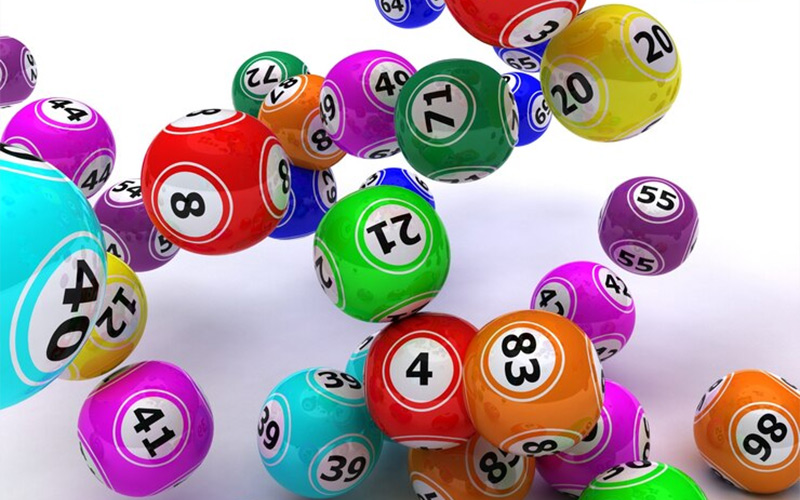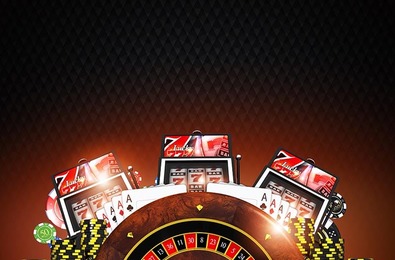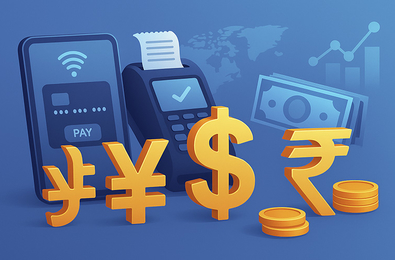Crypto Raffles: Verifiable Technology in the Casino Niche
In a world where clarity and reliability are becoming key success factors, blockchain and modern algorithms are opening a new era for the gambling businesses. Crypto lotteries are not just a tech trend but a sustainable financial model with huge potential.
Online Casino Market experts explain how to launch such entertainment projects from scratch.
About the Concept

In this case, money transfers are conducted in digital assets based on a distributed ledger. Such websites offer players increased security, instant payouts, and decentralised mechanics.
Features of the business:
- Clarity. All operations and their results are recorded in the distributed ledger, which ensures openness and protection against manipulation.
- Automation through smart contracts. Payouts, selection of winners, and purchase of tickets are managed automatically using programmable settings. This eliminates the human factor.
- Anonymity and globality. Participation does not require providing personal data, especially in countries with light regulations. Clients from all over the world can freely place bets.
- Minimum fees and fast payouts. Thanks to the use of crypto (most often BTC, ETH, and USDT), gamblers receive prizes instantly and without bank charges.
- Casino mechanics and tokenomics. Some lotteries that accept digital assets use unique coins or DAO models (a system of decentralised governance). Thanks to this, customers can participate in voting to change the rules of the game and develop the project.
The Role of Provably Fair Algorithms in Online Lotteries
The creation of raffles based on such algorithms is a promising direction in the entertainment sector. This approach ensures clarity, trust, and protection from fraud, which is especially important in the industry.
The Provably Fair principle is based on a cryptographic method that can be applied to double-check the fairness of each session.
The main components of the algorithm include:
- Server seed — published before the reels in slots are launched, or the cards are dealt.
- Client seed — a random number generated by the player or browser.
- Nonce — a counter used to determine the winning number or their combo.
At the end of the session, all data is disclosed, and anyone can check the result through the hash function. Neither entrepreneurs nor casino visitors can affect the outcome of rounds since the codes are generated before the spins begin.
Legal Nuances and Regulation

The crypto lottery legislation based on Provably Fair algorithms varies depending on the jurisdiction. There are countries with stricter requirements for operators and those where it is possible to implement such projects without any problems.
Loyal and Progressive Regions
Let us consider states that are known as blockchain-friendly:
- Curacao. This is one of the most popular places for licensing gambling platforms. The reform adopted in 2024 made it impossible for illegal businesses to operate and expanded the rights of law-abiding entrepreneurs. The permits remain affordable and popular with international investors.
- Malta. MGA supports innovative formats and regulates crypto entertainment, including lotteries. To obtain the necessary certificate, it is necessary to undergo due diligence and AML checks.
- Costa Rica and Panama. These countries offer flexible registration procedures and do not directly regulate the use of cryptocurrencies. The main condition is a ban on the provision of gambling services to the local population.
- Estonia. One of the most popular crypto hubs in the European Union. Despite the tightening of legislation in 2023, blockchain portals that obtained a certificate in Estonia continue to work legally and generate a decent profit for investors.
- Gibraltar. This jurisdiction supports the regulation of transactions in digital assets and blockchain solutions. The state puts forward minimal requirements for licensees. Taxes on GGR are low for Europe.
Among the regions with a strict attitude toward blockchain raffles or their complete prohibition, it is worth highlighting:
- the US (except for certain states with experimental law regimes);
- China;
- India;
- Germany (gambling transfers with digital assets are practically banned).
Nuances of Crypto Lottery Regulation
Key aspects that entrepreneurs should pay attention to:
- KYC and AML. Even in jurisdictions with low requirements, most legal crypto raffles implement basic Know-Your-Customer procedures to comply with AML regulations.
- Fairness of the gameplay. The use of Provably Fair systems and open source is increasingly becoming an industry standard, which is followed by top providers.
- Risks and obligations. Operators must guarantee clear mechanics, protection against manipulation, and a refund in case of cancellation of the draw. Many countries see crypto lotteries as gambling activities which require an appropriate licence.
How to Launch a Blockchain Lottery

The implementation of such a project using verifiable algorithms is a complex process. It includes technological development, legal preparation, and marketing efforts.
Formulation of an Idea and Model Selection
At the start, entrepreneurs need to determine the type of lottery:
- Classic. Users buy tickets with ETH, USDT, and other digital units. Then, they participate in the raffle through smart contracts. The winner is determined randomly thanks to the Provably Fair algorithm.
- DeFi lottery (risk-free). First, gamblers deposit cryptocurrency, after which the proceeds are placed in a special protocol (for example, Aave or Compound). Interest from the presented digital assets forms a prize pool, and the initial monetary investment is returned to customers.
- NFT raffle. Each ticket that participates in the drawing is a non-fungible token. Operators can sell, exchange, or transfer them as bonuses. The mechanics of a traditional lottery but with a unique design are taken as a basis.
Acquisition of a Licence
In most countries, lotteries are regulated the same way as gaming. There is also legal liability for the use of cryptocurrency, so in many states, business owners need to obtain 2 permits: to organise lotto draws and conduct transactions with digital assets.
It is most profitable to launch such entertainment platforms in offshore jurisdictions due to the following factors:
- a clear regulatory framework;
- simplified registration;
- low taxes;
- high trust from players, investors, and B2B partners.
The Choice of a Blockchain Platform
Operators should consider technical parameters, the level of commission fees, support for DeFi or gaming DApps, etc.
Popular online lottery portals based on distributed ledger include:
- Ethereum. The advantages of this blockchain environment include reliability, a huge audience, and compliance with the international ERC crypto standard.
- BNB Chain. The solution provides high transaction speed with minimal commission fees.
- Polygon. The service is well-suited for organising instant raffles with a minimum cost of entry. Besides, it offers custom networks for lotteries.
- Solana. The platform supports Web3 integrations and is trusted by players.
Smart Contract Development
To launch a crypto business based on Provably Fair algorithms, entrepreneurs will need 3 digital contracts:
- for selling tickets and collecting bets;
- for generating a random number (on-chain or Chainlink VRF);
- for paying out prizes.
To create them, it is possible to use Chainlink VRF, Randomness Beacon, and other tools. They ensure the reliability and authenticity of results and protect smart contracts from any manipulation.
Connection of the Payment System

The integration of popular wallets and digital assets is one of the foundations of the modern crypto lottery business. It ensures decentralisation, security, and global coverage without banking restrictions. Moreover, support for cryptocurrencies directly affects the user experience and the LTV indicator.
Modern Web3 platforms for raffles should provide seamless integration with the following wallets:
- MetaMask. The system conducts transactions in Ethereum, BNB, Polygon, and other tokens. The monthly audience of the payment resource is more than 30 million people.
- WalletConnect. This is a universal protocol that supports hundreds of wallet types and seamless DApps integration.
- Trust Wallet. It is characterised by the integration of more than 65 blockchains. The product is considered the best solution for the Solana platform and SPL tokens.
- Coinbase Wallet. The wallet supports Web2 transition and is an excellent choice for legal management of a crypto lottery business in the USA.
The Choice of a Monetisation Strategy
The main sources of income include:
- commission from each draw (1–5%);
- ticket sale;
- sponsored NFTs;
- paid DAO voting (via utility tokens);
- ticket staking for getting access to VIP draws.
Many successful blockchain raffles launch unique virtual coins. They serve as a means of payment and also a key to access, statuses, or management.
Key functions of utility tokens:
- purchase of tickets (with a bonus for paying with a “proprietary” digital asset);
- access to VIP sessions and NFT lotteries;
- DAO voting for the format of future raffles;
- referral rewards and cashback in loyalty tokens;
- staking for participation in risk-free lotteries (no-loss).
Marketing Campaign Setting
The most effective promotion methods include:
- using Twitter/X and Telegram messengers (they are the basic platforms for advertising blockchain projects);
- collaborations with influencers (for example, by publishing YouTube reviews or adding Discord streams);
- launch of Airdrop campaigns with mandatory sharing on social networks.
Business owners can also use:
- integration with NFT collections and DAO services;
- referral programs;
- gamification tools (levels, achievements, and rewards for activity);
- loot boxes.
The Main Things about Crypto Raffles
Blockchain lotteries based on the Provably Fair principle are a technologically advanced, legal, and transparent operating model.
Aspects that entrepreneurs should consider:
- The launch of a profitable and sustainable business requires careful preparation. Managers will need to build a transparent system based on a distributed ledger using verifiable algorithms and smart contracts, as well as create a strong token economy and choose the right region, audience, etc.
- An important point is the automation of the main tasks. This includes account replenishment, organisation of lotteries, payout of prizes, marketing campaign implementation, and analysis of its efficiency.
The Online Casino Market studio has vast experience in creating blockchain-based gambling platforms. We will help you to prepare a business plan, calculate KPIs, obtain a licence, launch an iGaming platform, and provide technical support.
Check the information used to contact us carefully. It is necessary for your safety.
Fraudsters can use contacts that look like ours to scam customers. Therefore, we ask you to enter only the addresses that are indicated on our official website.
Be careful! Our team is not responsible for the activities of persons using similar contact details.







 Demo
Demo 


